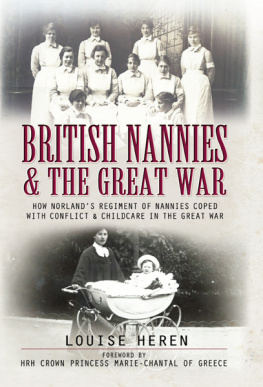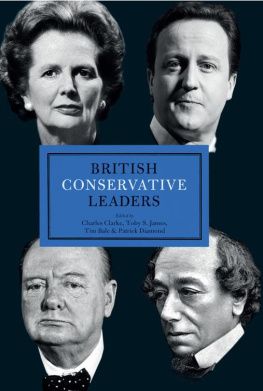S o, how do you feel? Do you think theres something wrong with being British? Or do you feel that you should think theres something wrong about being British? And, even if the answer to those questions is No, do you sometimes sense that there are quite a few people out there in the paper, on the TV and radio who certainly think there is quite definitely something wrong with it, and want to make damn sure you realise it too?
In 2012 the year of the London Olympics and the Queens Diamond Jubilee it would be virtually impossible, despite all the celebrating around these national events, to answer No to all these questions. We all live in the same atmosphere, and after a couple of decades of national soul-searching, academic debates around the very meaning of what constitutes Britishness, and the occasional opportunistic intrusion from Westminster politicians, ours is a culture suffused with doubt, self-loathing and a fear for the future if we can bring ourselves to think about the future at all. Contrary to what economists may believe, gloom and pessimism are not states of mind brought about just by financial crises they can just as easily be the product of an acute cultural malaise. And Britains has been about as acute as it can get.
Angry? Sad? Frustrated?
This shows itself in countless ways all around us every day, although every so often a small seemingly insignificant incident brings it home to you. While standing in a queue at a bookshop in central London recently, I overheard a conversation between the two sales assistants. Both in their early twenties, theyd obviously been discussing some social or political point (it was in the History section).
Anyway, said the first with a smirk by way of wrapping up, what has Britain ever given the world? Oh yeah, concentration camps.
Yeah, agreed his colleague with a snort of derision.
My turn was next. I felt saddened for a moment, and then a sort of anger welled up inside me. But I said nothing. I glared at them a bit, although in contemporary Britain that once effective way of registering annoyance no longer really works. So I rationalised: the conversation hadnt been meant for me or the other people waiting, so I had little right to stick my oar in.
But that wasnt really the reason I kept quiet. I knew it would have appeared odd for me to take issue with what theyd been saying. I would have come across to them, and the other customers, like some sort of eccentric: what Private Eye used to call Disgusted of Tunbridge Wells.
Besides which, these two, Im sure, would have simply assumed those around them would agree with them, or at least wouldnt be bothered either way; they hadnt after all felt remotely inhibited about airing their views in front of us. So they would have been utterly taken aback, astonished, if Id challenged them if Id started to drone on about parliamentary democracy, the industrial revolution, the rule of law, football, Shakespeare or the fact that Britain virtually shaped the world they were living in. They would have been astonished , either because they simply wouldnt have known what I was talking about, or if they did, that I should assume these were achievements to be proud of. They would have thought me some kind of ghastly reactionary nationalist, a bigot no doubt, maybe even a fascist.
But their exchange is par for the course in many circles. Self-loathing for that is what this is now runs through British culture to such an extent that we no longer even see it for what it is. For many, it has come to be the natural way of looking at the world. We have become used to living in a permanent state of cultural cringe which harms our societys very ability to move forward.
Being self-effacing about our achievements, reticent about our way of life, and not banging our own drum when it came to national pride was once considered not just fitting, but one of the very characteristics which defined Britishness. As has been said by politicians from both parties during one of our recent spasms of argument about national identity, we do not do flags in the front garden like our brash, vulgar American cousins. This is not what were about, and goes against the very essence of Britishness. In its gentleness, the old approach was indeed quite attractive, even if it did rely on an implicit sense of imperial superiority. But if it still exists and it does in the minds of, say, romantic old-fashioned Tories the simple hiding of our national light under a bushel is quite different from the outright self-abnegation which in reality now characterises so many parts of our national life.
Dome and gloom
Two events in post-war Britain illustrate all too well how much things changed within the space of half a century. The Festival of Britain in 1951 was celebrated in a mood of relief for the end of the war, but also with an optimism about the future. Centred on Londons South Bank, it took place in a country which still had a strong sense of itself and its achievements. The new Royal Festival Hall and the space-age symbolism of the Skylon displayed a cultural confidence which, while maybe not matching the wonders of the 1851 Great Exhibition, still proclaimed a sense of national purpose and identity. Britain might have been utterly exhausted, but it was exhausted in the knowledge that it had been victorious in a war which had brought its finest hour, during a battle which was to be viewed ever-after as a righteous one. Despite the terrible toll that the war had taken on the country and its economy, as a national celebration, the Festival could still take place in an atmosphere of remarkable social cohesion.
Furthermore, many of the people celebrating at that time would still have considered their nationality to be an intrinsic part of their very own characters. This is something which many of us, now living in the long shadows cast by the baby-boomer era, the me-generation and the counterculture of the 1960s, might find hard to understand. But the survivors of the war still took for granted the idea that somehow they were not simply their own individual inventions, but were also intrinsically formed by the nation of which they were a part. Its history was their history, its troubles their troubles. Their responses were also partly informed by a belief, taken for granted, in a set of national characteristics. I saw this in my own parents, both of whom had been teenagers at the time of the Festival. Throughout their lives and they were both strongly individual people they continued to explain a feeling here and an action there in collective, national terms: such and such wasnt the kind of thing we go in for here, or that was not really our cup of tea. They knew who they were.
Now cut to half a century later. Britain again prepares to mount a popular, national celebration, this time to mark the millennium. It comes during a period when New Labour are attempting to rebrand the country as a dynamic, creative powerhouse of modernity. The government, embarrassed and impatient not just with our past but with the remaining institutions that symbolise it, fatuously pronounces that we are in fact a young country. It is Year Zero for Britain. So the celebration takes the shape of the super-new, super-expensive Millennium Dome. Unfortunately, because it is conceived by people who seem to have lost all confidence in Britain as well as their own personal sense of being part of it, it inevitably proves a dismal, demoralising failure.
Nobody can decide what should be in it. What it should not be seems to preoccupy organisers far more than anything more affirmative or celebratory. Marooned outside central London, in the shadow of Canary Wharf and far away from where the crowds are actually gathering to see in the next thousand years, it is full of banal and sometimes unintentionally funny compromises. At the party held there on the eve of the new epoch, an uneasy Sovereign and a hyped-up Prime Minister link hands to sing Auld Lang Syne with all the awkwardness of a first date. Unlike the 1951 festival, or even more so the 1851 Great Exhibition, the Dome manages, with its zones and supposedly visitor-friendly attractions, to both patronise and condescend in its attempts to be accessible and popular. As a result, the people stay away in their millions. In its afterlife, and roughly a billion pounds later, the Dome manages finally to find fame as a popular if windswept venue for rock gigs.










